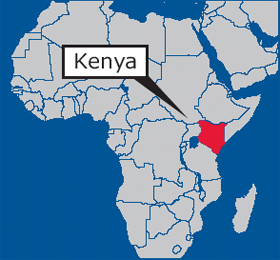Kenyan environmentalists blast biofuel plans in coastal wetlands
 Nairobi - A Kenyan environmental group Wednesday blasted a plan to convert 200 square kilometres of coastal wetlands to biofuel production, saying it will endanger livelihoods and threaten local wildlife.
Nairobi - A Kenyan environmental group Wednesday blasted a plan to convert 200 square kilometres of coastal wetlands to biofuel production, saying it will endanger livelihoods and threaten local wildlife.
The government approved the plan to grow sugar cane on 20,000 hectares of the Tana River Delta, but Nature Kenya says it will destroy the dry season grazing grounds for pastoralists.
"Politicians have said it will create jobs, but taking away the pastoralists' animals is like a death sentence to them," Nature Kenya spokeswoman Sarah Munguti told Deutsche Presse-Agentur dpa.
United Nations' aid agencies based in Nairobi on Wednesday warned that 1.2 million people in Kenya, many of them pastoralists, are in need of food aid.
British charity Oxfam has said that increasing land use for biofuels has forced tens of millions of people worldwide into poverty.
Munguti warned the environmental impact study done on the project did not take the opinion of environmentalists into account and said that the diversion of water - up to one third of the Tana River - could leave fishermen and local farmers struggling.
"The report did not have the data to say if enough water was left to support farmers and fishermen," she said. "Without such data it is ill-advised to go ahead with the project."
According to the Mumius Sugar Company, the 364-million-dollar plant is to process 80,000 tonnes of sugar cane daily, generating 34 megawatts of electricity, and will create thousands of jobs.
According to Nature Kenya, however, the project does not make economic sense.
"We have done a cost-benefit analysis that shows the economic gain from current use of the delta is three times what the sugar cane project would bring in - pure business sense says we will lose 2.5 billion shillings (37.9 million dollars) annually," Munguti said.
The delta, 100km north of the popular tourist destination of Mombasa, is home to hundreds of species of birds, plants and primates, all of which will be threatened by the project, Nature Kenya said.
"A project of that size is inevitably going to affect biodiversity," Munguti said. (dpa)